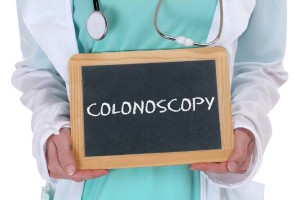 A colonoscopy is a medical procedure performed by a gastroenterologist to view the inside of your colon. It is a great tool in discovering polyps, cysts, and any other abnormalities within the colon. Individuals over the age of 50 are encouraged to get a colonoscopy since colon cancers are more prevalent in that population.
A colonoscopy is a medical procedure performed by a gastroenterologist to view the inside of your colon. It is a great tool in discovering polyps, cysts, and any other abnormalities within the colon. Individuals over the age of 50 are encouraged to get a colonoscopy since colon cancers are more prevalent in that population.
There are other circumstances, however, that would lead a doctor to prescribe a colonoscopy to his/her patient. Blood in the stool, chronic stomach pain, diarrhea, and abnormalities found on an x-ray all would lend themselves reasons to have this procedure. Those with a known history of abnormalities in the colon should get checked regularly.
Many people become worried and anxious when they know that they need a colonoscopy. It really is a simple procedure and most of the anxiety is not knowing what will happen and how it is performed. Here is a brief overview:
Prep
Prepping for the colonoscopy is very important. The colon must be absolutely clean. Your doctor will prescribe a cleansing procedure, usually a liquid diet and a powerful laxative for you to consume the day prior to your appointment. This will clear your colon so that your doctor has a clear view.
Procedure
You will be asked to lie either on your left side or on your back. A colonoscope, a small, flexible tube with a camera on the end, is inserted into the colon. Your doctor is able to see the inner lining of your colon with this device. He/she is also able to take biopsies for testing at a later time if something suspicious is discovered. The time frame from start to finish can take anywhere from 15- 60 minutes. You will typically be under general anesthesia, so you will not be uncomfortable during the procedure.
After a colonoscopy
Due to the anesthesia that is given, you will remain in a recovery area for a couple of hours. You may experience grogginess and slow motor capability for the rest of the day, so driving home is not allowed. You can eat upon arriving home, but your doctor may restrict your diet based your particular colonoscopy. Cramping may be experienced which is normally gas and can be expelled naturally.
Results of your colonoscopy, if a biopsy is taken, will be communicated to you by your doctor. If further treatment is required, you and your doctor can make a plan.
To find a Gastroenterologists in the southwest Florida area, visit IPALC.org
Share on Facebook



 Southwest Florida Medicine.com is dedicated to bringing you the very best health information available today!
Subscribe or check back regularly!
Southwest Florida Medicine.com is dedicated to bringing you the very best health information available today!
Subscribe or check back regularly!